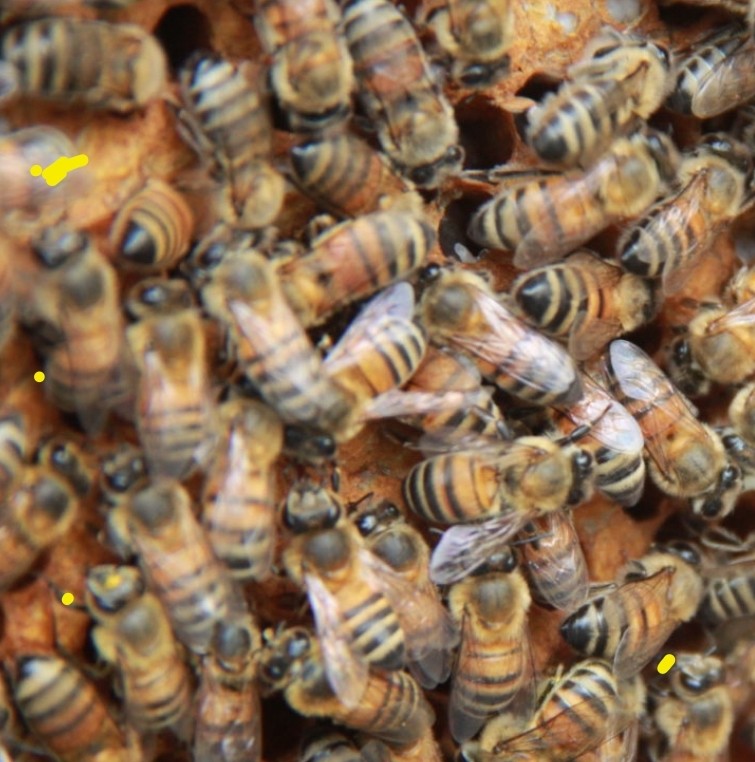As explained by Amb. Engr. Godwin Apple, former SSA to Governor on Honey Bee Project and Head of Apicultural Development in Cross River State.

Amb. Agim Godwin Apple, CEO Utanga Honey Bee Sanctuary, Obanliku Local Government Area in Cross River State Nigeria.
It is believed that Honey bees fall in the class Insecta. (Ref. Google).

Insects are defined by their hard outer bodies called exoskeletons, three body segments (head, thorax, abdomen), three pairs of legs, and 2 antennae. There are over a million insects on the planet! Honey bees are in the order Hymenoptera.
In terms of honey bees, the term “class” is not commonly used to describe different groups of bees. However, bees can be categorized into different types based on their roles and functions within the colony.
Here are the members of class in bee colonies that shares the division of labour, and these can be identified through the progress of the work in the colony.

Bee Colony at the Utanga Honey Bee Sanctuary in Becheve II, Utanga Obanliku.
Queen bee: The queen is the largest bee in the hive and has the vital role of laying eggs. She is responsible for the reproduction and growth of the colony.
Worker bees: These are the most numerous bees in the colony and are all female.
They perform various tasks such as building and maintaining the hive, foraging for food, caring for the brood, and defending the colony. Worker bees are the ones responsible for producing honey.
Drone bees: Drones are the male bees within the colony. Their primary role is to mate with the queen. They do not have stingers and do not contribute to the day-to-day tasks of the hive.
It’s worth noting that the success of a honey bee colony is not determined by individual classes, but rather the overall health and strength of the entire bee population working together.
Hives in Cross River State are expected to have at most, 85,000 bees in a colony, and we are witness some colonies at the sanctuary in Obanliku with more than 100,000 also few of the Hives of Obudu BeeFarm Project in Bebuabie has increased the population to over 120,000 in one colony, through the increase in scouter bees.
With this development, the year 2024 will produce higher quality and quantity of honey, for bee farmers in all locations in Cross River State.
copyright ©️ Ambassador Agim Godwin Apple [email protected]
